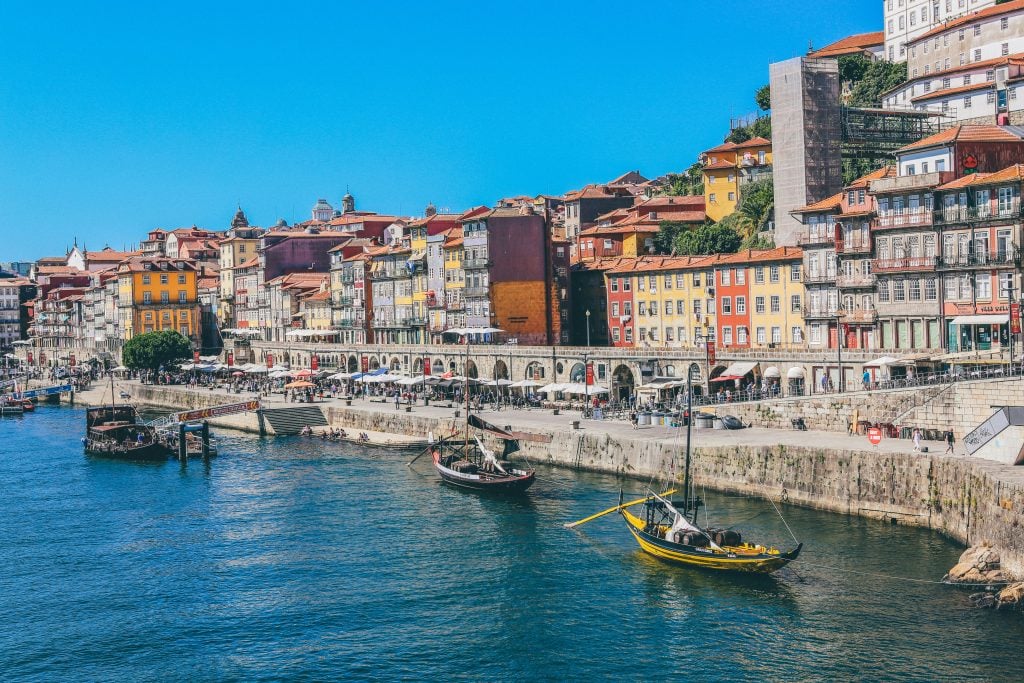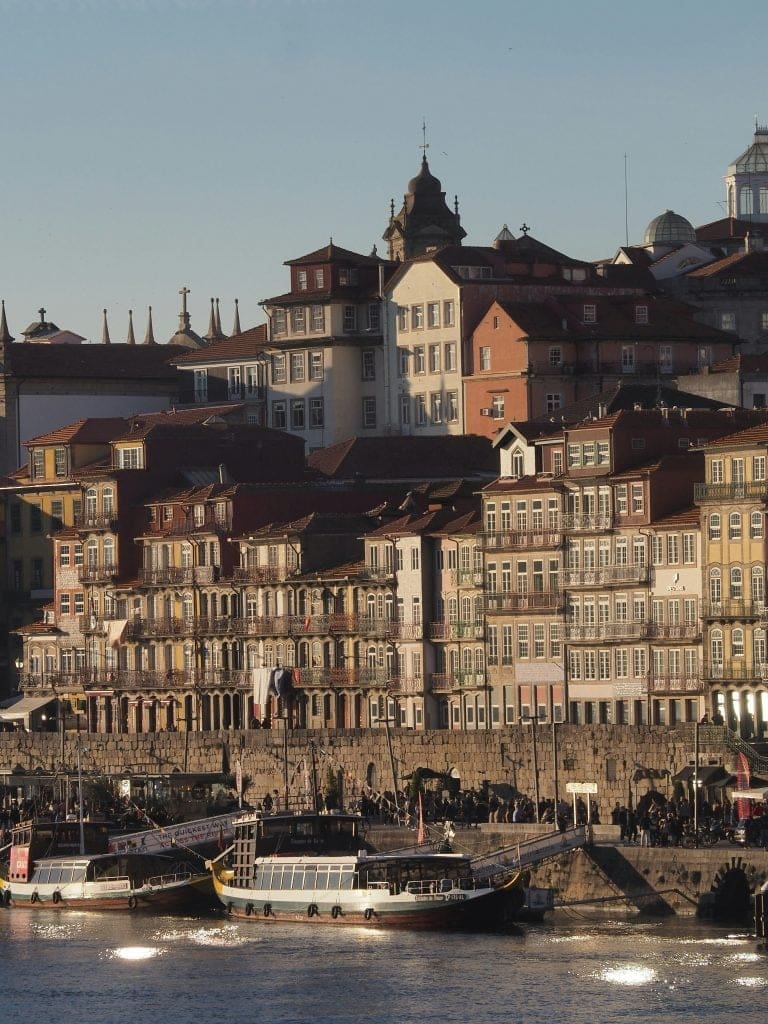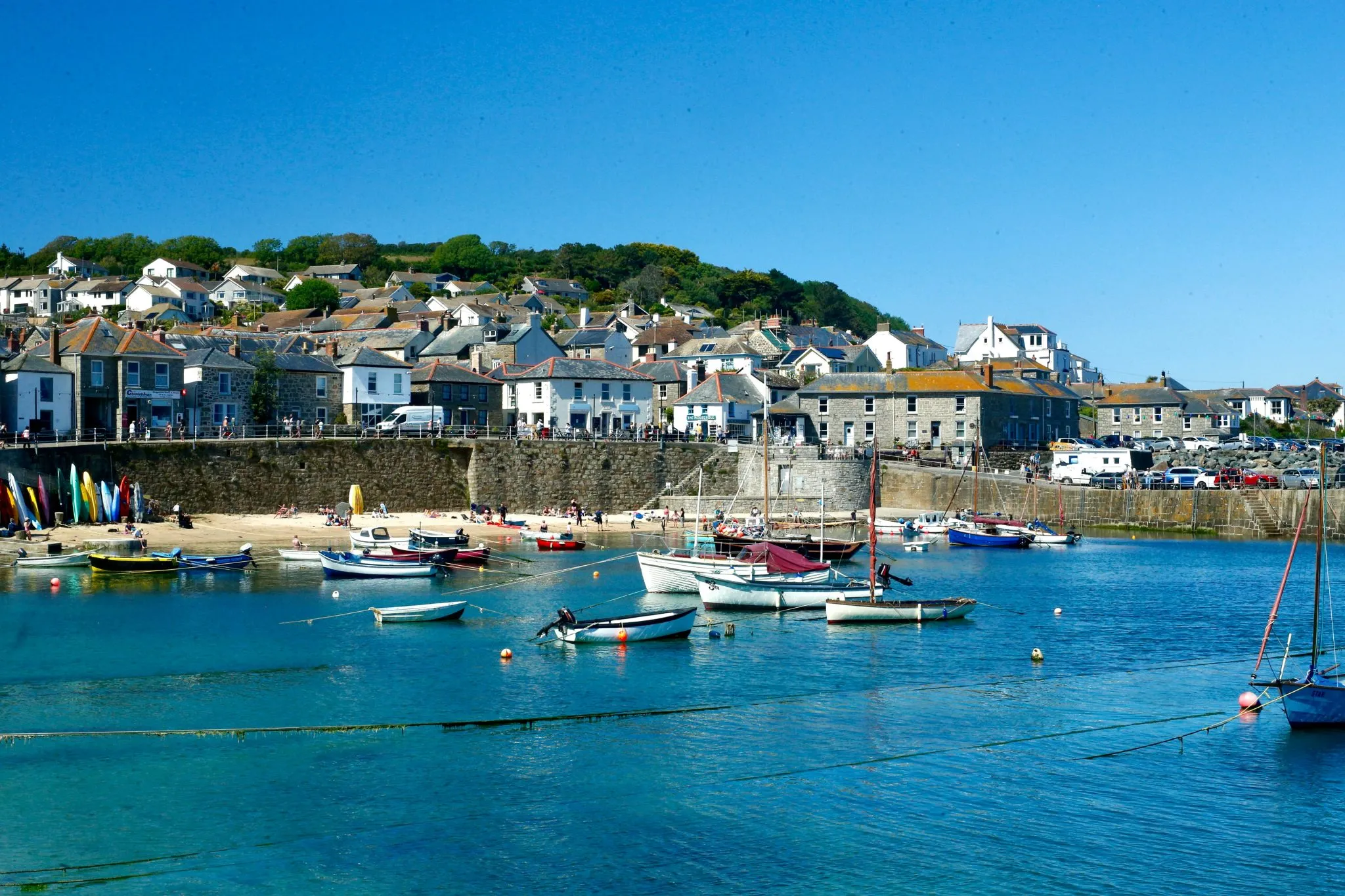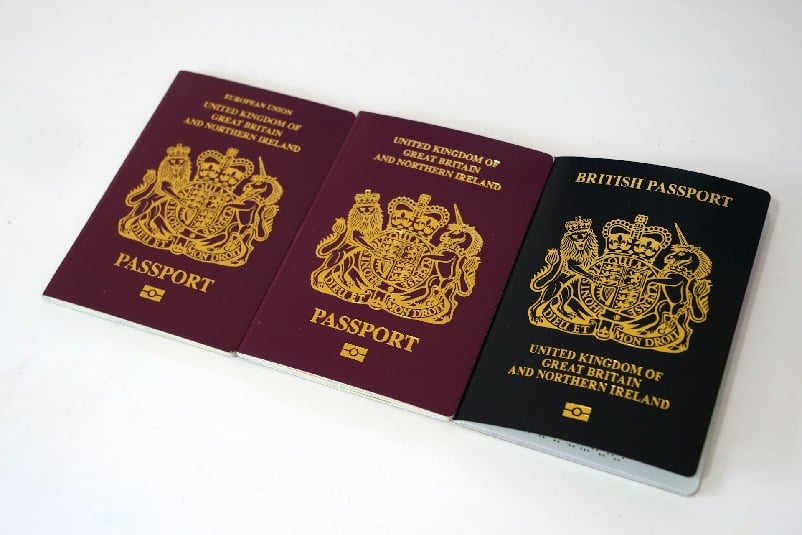Retiring to Portugal from the UK
Portugal’s reputation as a retirement destination is growing, particularly among UK expats.
For more information about retiring to Portugal or anywhere else in the world, reach out to one of our immigration advisers on +44 (0)333 414 9244 or contact us online today.
Read our 1001 reviews
Overview of Retiring to Portugal
Portugal is gaining traction as a popular retirement destination for UK, European and other worldwide expats.
This is for a variety of reasons, namely Portugal’s combination of warm weather, reasonably low cost of living, good quality healthcare and slow, relaxed pace of lifestyle.
Portugal is also well-placed in Western Europe to explore other countries such as Spain, France and Italy, as well as islands such as the Azores and Madeira.
In order to facilitate expats being able to retire in Portugal, the country has two main visa routes that retirees can take advantage of. These are the D7 visa, which is intended for individuals who have a reliable source of passive income not sourced from active employment, and the Golden visa, which allows individuals to settle in Portugal under the condition of investing money into certain projects and ventures.
Should I Retire in Portugal or the UK?
UK expats may ask themselves if a European country such as Portugal may be a better option for retirement than the UK.
There are a few positives of both that individuals may want to consider. Some benefits of retiring to Portugal rather than the UK include the following:
- Portugal has a significantly lower cost of living than the UK, with amenities such as local groceries, housing, utility bills and meals being consistently cheaper than in the UK.
- The Portuguese D7 and Golden visas allow their holders to eventually apply for Portuguese citizenship, granting the holder full benefits of EU membership and unrestricted free movement across the bloc.
- Portugal is a safer country overall than the UK in terms of crime and societal safety, being ranked 7th on the Global Peace Index. The UK is ranked 34th.
- Portugal has significantly warmer and sunnier weather than the UK, with a diverse range of landscapes and stretches of picturesque beaches.
However, some negatives of retiring in Portugal may include the following:
- Individuals retiring to Portugal will likely have to learn how to speak the language in order to get by with daily basics, which is a commitment that not everyone may wish to undertake.
- Some individuals have reported that Portugal is a highly bureaucratic nation, and things can move slowly when dealing with the government or other officials.
- Despite the fact that Portugal has a lower cost of living overall than the UK, property and amenities can sometimes come at a high premium, especially in cities such as Porto and Lisbon.
Individuals looking to retire in the UK may also wish to consider the following when considering moving abroad to retire:
- The initial cost and hassle (paperwork, bureaucracy, etc) of moving to a different country and uprooting yourself from your home.
- Being relatively far away from friends and family in your own home country and the future costs of having to travel back there to visit.
- Whether you could also find enjoyment in simply moving to a different part of the country, especially if you already live in a part of the country that is colder, wetter or darker than average.
- How willing you might be to try and integrate into a completely new and foreign community, and how much living in a new country aligns with your general retirement goals.
Furthermore, you should consider some of the benefits of retiring in the UK over Portugal:
- Continued access to free healthcare. You will only have access to free healthcare in Portugal once you become a permanent resident. Prior to that, you will have to rely on health insurance and private healthcare options.
- Access to UK-only state benefits and welfare options.
If you do wish to retire to Portugal from the UK, there are a couple of viable options that you could take advantage of.

How to Retire in Portugal: The D7 Visa
The D7 visa, also known as the Passive Income visa, is likely the main visa route for UK retirees looking to retire in Portugal.
This allows individuals who have a reliable passive income (i.e. income not gained from employment) to reside in Portugal.
This visa will eventually allow you to apply for permanent residence in Portugal and, if eligible, Portuguese citizenship.
What Are the Portugal D7 Visa Requirements?
In order to be eligible for the Portudal D7 visa, you must:
- Be aged 18 or over
- Be a non EU/EEA national
- Have a passive income of at least €9,120 per annum (higher if bringing dependent children and/or a partner or spouse with you). This can be from things such as the following:
- Pensions
- Real estate
- Earnings from long term, fixed-rate financial investment
- Business dividends
- Interest from savings
- Have a clean criminal record
- Have a Portuguese NIF (Número de Identificação Fiscal) number
- Have a Portuguese bank account
Note that the Portugal D7 visa also has a minimum residency requirement. In order to keep your visa valid, you must spend at least 6 consecutive months or 8 non consecutive months in any 12-month period while in Portugal.
Not meeting the minimum residency requirement may result in your visa being voided.
How Do I Apply for the Portugal D7 Visa?
The application process for a Portuguese D7 visa is in two steps.
Firstly, you must lodge an application for the D7 visa with the Portuguese consulate in London. This must be done no earlier than 3 months before your planned departure date.
If your application is approved, you will receive a stamp in your passport, which you can use to travel to Portugal.
Once in Portugal, you must then apply for a residence permit at a local Serviço de Estrangeiros e Fronteiras (SEF) office. This residence permit will be valid for 2 years, but can be renewed for another 3 years.
How Much Does the Portugal D7 Visa Cost?
The Portugal D7 visa typically costs around €90 to obtain.
On top of that, you will have to pay around €70 for a residence permit once in Portugal.
How to Retire in Portugal: The Golden Visa
If the D7 visa doesn’t appeal to you, you may wish to consider the Portuguese Golden visa as an option to retire in Portugal instead.
This is a residence visa where you must invest a certain amount of money into Portuguese ventures in order to attain residency status.
However, unlike the D7 visa, you only have to physically be in Portugal for a minimum of seven days a year on average, which means that this may be a good option for those who wish to obtain Portuguese residency but also want to spend time exploring other countries.
What Are the Portugal Golden Visa Requirements?
In order to be eligible for the Portugal Golden visa, you must:
- Be aged 18 or over
- Be a non EU/EEA national
- Make a minimum investment into one of the following:
- €500,000 into a private equity or venture capital fund in Portugal
- €250,000 in preserving national heritage in Portugal
- €500,000 in a scientific research and development activity in Portugal
- €500,000 into an existing Portuguese business, or invest in the creation of a minimum of 10 new full-time jobs in a Portuguese business that is owned by you
- Have a clean criminal record
- Have a Portuguese NIF (Número de Identificação Fiscal) number
- Have a Portuguese bank account
You must also commit to the minimum residency requirement, which is a total of 14 days in Portugal in any 2 year period.

How Do I Apply for the Portugal Golden Visa?
In order to apply for the Portuguese Golden visa, you must first have a Portuguese bank account and NIF number.
You should then proceed with making your investment, ensuring that you retain all supporting documents and evidence to support your visa application.
After this, you will have to complete and submit the online application form on the SEF’s website. You will then be expected to attend an appointment with SEF within Portugal, after which you will obtain your visa.
How Much Does the Portugal Golden Visa Cost?
The initial application for the Golden visa will be approximately €773.73, with a further €7,730.11 to be paid once the Golden visa is approved and granted.
The €773.73 fee will also have to be paid every time the Golden visa is renewed, which will be two years at a time.
How Can IAS Help?
Choosing where to spend your retirement can be a significant decision to make, especially if you’re weighing up various different options.
If you’re considering retiring to Portugal or to any other country around the world, IAS can help.
We offer personalised, expert immigration advice for a wide range of issues. Whether you need help putting together an immigration application, need advice on where would be the best place to emigrate to for your retirement, or need assistance with a complex legal matter or scenario, we can help.
For more information about the services we offer and what we can do for you, reach out to us on +44 (0)333 414 9244 or contact us online.
Table of Contents
Table of Contents will appear here.Legal Disclaimer
The information provided is for general informational purposes only and does not constitute legal advice. While we make every effort to ensure accuracy, the law may change, and the information may not reflect the most current legal developments. No warranty is given regarding the accuracy or completeness of the information, and we do not accept liability in such cases. We recommend consulting with a qualified lawyer at Immigration Advice Service before making any decisions based on the content provided.















